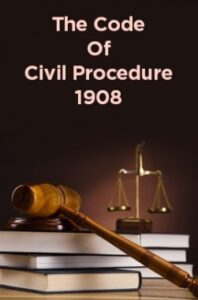Admission under Order XII Rule 6 of the Code of Civil Procedure 1908:
Extent and Scope
Author: Utkarsh Srivastava
Advocate-on-Record, Supreme Court of India
 Whether a statement made in examination-in-chief and cross-examination in a separate case be considered as an admission for the purposes of Judgment under Order XII Rule 6 of the Code of Civil Procedure 1908 in a different case?
Whether a statement made in examination-in-chief and cross-examination in a separate case be considered as an admission for the purposes of Judgment under Order XII Rule 6 of the Code of Civil Procedure 1908 in a different case?
Order XII Rule 6 reads as follows,
“Judgment on admissions —
(1) Where admissions of fact have been made either in the pleading or otherwise, whether orally or in writing, the Court may at any stage of the suit, either on the application of any party or of its own motion and without waiting for the determination of any other question between the parties, make such order or give such judgment as it may think fit, having regard to such admissions.
(2) Whenever a judgment is pronounced under sub-rule (1) a decree shall be drawn up in accordance with the judgment and the decree shall bear the date on which the judgment was pronounced.”
…Emphasis Supplied
In Himani Alloys Ltd. v. Tata Steel Ltd. (2011) 15 SCC 273, it has been held by the Hon’ble Supreme Court of India that,
“11. It is true that a judgment can be given on an “admission” contained in the minutes of a meeting. But the admission should be categorical. It should be a conscious and deliberate act of the party making it, showing an intention to be bound by it. Order 12 Rule 6 being an enabling provision, it is neither mandatory nor peremptory but discretionary. The court, on examination of the facts and circumstances, has to exercise its judicial discretion, keeping in mind that a judgment on admission is a judgment without trial which permanently denies any remedy to the defendant, by way of an appeal on merits. Therefore, unless the admission is clear, unambiguous and unconditional, the discretion of the Court should not be exercised to deny the valuable right of a defendant to contest the claim. In short the discretion should be used only when there is a clear “admission” which can be acted upon.”
…Emphasis Supplied
Similarly, in S.M. Asif v. Virendra Kumar Bajaj (2015) 9 SCC 287, it was held that,
“8. The words in Order 12 Rule 6 CPC “may” and “make such order …” show that the power under Order 12 Rule 6 CPC is discretionary and cannot be claimed as a matter of right. Judgment on admission is not a matter of right and rather is a matter of discretion of the court. Where the defendants have raised objections which go to the root of the case, it would not be appropriate to exercise the discretion under Order 12 Rule 6 CPC. The said rule is an enabling provision which confers discretion on the court in delivering a quick judgment on admission and to the extent of the claim admitted by one of the parties of his opponent’s claim.”
…Emphasis Supplied
However, in Uttam Singh Dugal & Co. Ltd. v. United Bank of India, (2000) 7 SCC 120, it was observed by the Hon’ble Supreme Court that where a claim is admitted, the court has jurisdiction to enter a judgment for the plaintiff and to pass a decree on admitted claim. The object of Order XII Rule 6 is to enable the party to obtain a speedy judgment.
While deciding an issue arising out of a Suit for Possession Hon’ble Supreme Court in Karam Kapahi v. Lal Chand Public Charitable Trust, (2010) 4 SCC 753 made the observation that the provision of Order XII Rule 1 as compared to Order XII Rule 6 is limited to admission by “pleading or otherwise in writing”. But the expression “or otherwise” used in Order XII Rule 6 gives it much wider view, namely, “admission of fact … either in the pleading or otherwise, whether orally or in writing”.
Even admissions in answer to interrogatories are also covered under this Rule. (Mulla’s Commentary on the Code of Civil Procedure 1908, 16th Edn., Vol. II, p. 2177).
Relying on the judgment in Balraj Taneja v. Sunil Madan (1999) 8 SCC 396, Hon’ble Supreme Court of India further held in Hari Steel & General Industries Ltd. v. Daljit Singh, (2019) 20 SCC 425 that the court is not to act blindly upon the admission.
Recently, Hon’ble Supreme Court while deciding an issue on tenancy and interpretation of West Bengal Premises Tenancy Act 1956 and West Bengal Premises Tenancy Act 1997 framed a question of law in Rajesh Mitra v. Karnani Properties Ltd., 2024 INSC 719.
Hon’ble Supreme Court framed the question as to whether the Appellants had become tenants upon the death of their father under the 1956 Act and what were the effects of the subsequent new Act of 1997 on such tenancy.
Hon’ble Supreme Court observed that the above framed question involved a question of law which also goes to root of the matter. It held that what has been given to the Appellants/Tenants under law cannot be taken away on the basis of an unclear disposition.
In other words, Hon’ble Supreme Court allowed the appeal holding that there cannot be an admission against the law.
Therefore, this answers the aforementioned question in the affirmative, but it also depends on the content and kind of statement. This varies from case to case depending upon the totality of the facts and circumstances of the case. Order XII Rule 6 although is meant for speedy disposal of suits but only in those cases where there is a clear, unambiguous, unequivocal, and unconditional admission.
You can explore our other articles here: Articles By Saral Legal Solutions